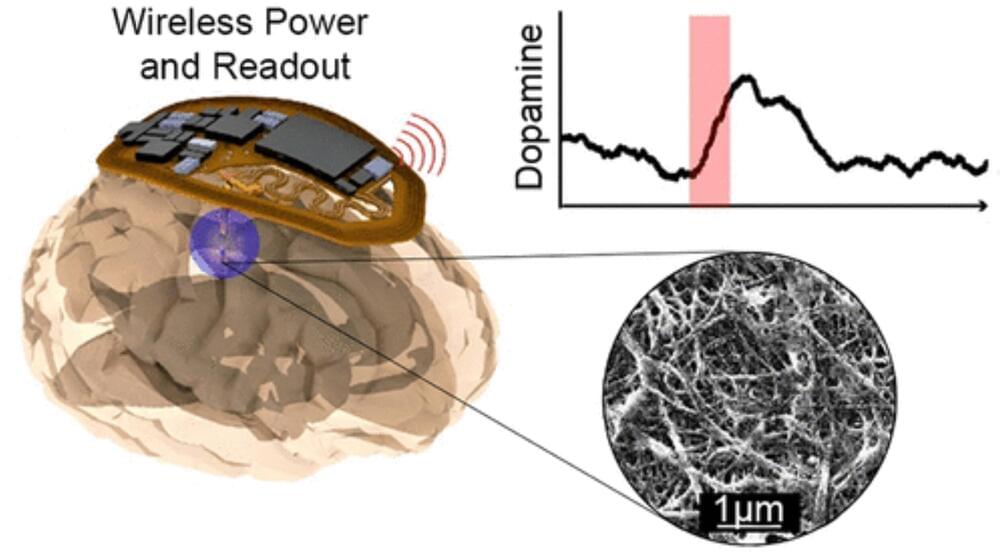Scientists have developed a wireless, battery-free implant capable of monitoring dopamine signals in the brain in real-time in small animal models, an advance that could aid in understanding the role neurochemicals play in neurological disorders.
The device, detailed in a study published in ACS Nano, activates or inhibits specific neurons in the brain using light, a technique known as optogenetic stimulation. It also records dopamine activity in freely behaving subjects without the need for bulky or prohibitive sensing equipment, said John Rogers, Ph.D., the Louis Simpson and Kimberly Querrey Professor of Materials Science and Engineering, Biomedical Engineering and Neurological Surgery, and a co-author of the study.
“This device allows neuroscientists to monitor and modulate brain activity in real-time and in a programmable fashion, in mice—a very important class of animal model for neuroscience studies,” Rogers said.









Comments are closed.